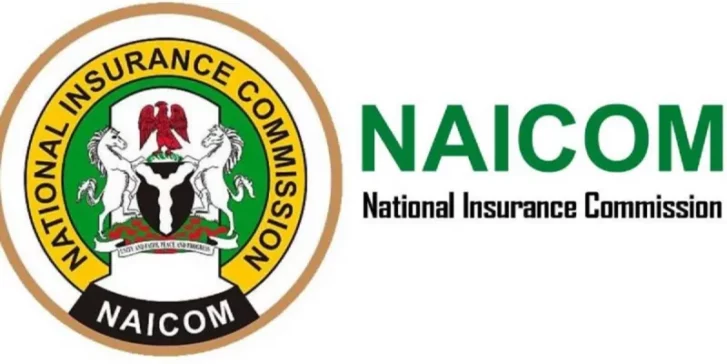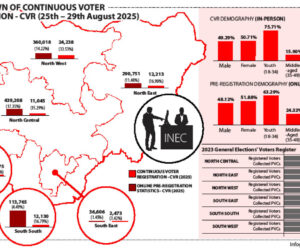1
LAGOS – Nigeria’s insurance industry has entered a new era of transformation as 58 insurance and reinsurance companies are set to raise a combined N980 billion within the next 12 months to meet the new capital thresholds under the Nigerian Insurance Industry Reform Act (NIIRA) 2025.
The recapitalisation, which officially commenced on July 31, 2025, marks one of the most ambitious capital-raising drives in the history of the sector.
The reform mandates new minimum capital requirements (MCR) of N10 billion for life insurers, N15 billion for non-life, N25 billion for composite, and N35 billion for reinsurance companies.
According to industry data, 29 non-life insurance firms will collectively raise about N435 billion, 14 life insurers will mobilise N140 billion, 12 composite insurers are targeting N300 billion, while three reinsurance companies will contribute N105 billion to meet the new benchmarks.
The recapitalisation exercise, spearheaded by the National Insurance Commission (NAICOM), is designed to strengthen the industry’s financial resilience, enhance claims-paying capacity, and position the insurance sector as a key enabler of Nigeria’s economic growth.
According to NAICOM, the NIIRA 2025 reform is aimed at creating a stronger, better-capitalised, and more transparent insurance ecosystem that can effectively manage risks and attract both domestic and foreign investors.
“The recapitalisation initiative is meant to improve the financial stability of insurance companies, enhance claims settlement, and deepen consumer confidence,” NAICOM stated.
“Our goal is to ensure that only solvent and well-capitalised insurers operate in the market.”
The commission warned that companies failing to meet the new capital thresholds within the stipulated 12-month window risk losing their operating licences.
For NAICOM, the exercise is not merely a regulatory imposition but a crucial step toward aligning Nigeria’s insurance industry with international best practices.
The commission believes that increased capitalisation will facilitate compliance with the Risk-Based Capital (RBC) framework, which ties capital adequacy to the individual risk profiles of insurance firms.
Abiodun Aribike, Deputy Director, Technology Strategy and Research at NAICOM, said the recapitalisation process would significantly enhance the safety and soundness of the industry.
“The transition to the RBC regime will ensure that each insurer maintains sufficient capital to match its risk exposure, thereby solidifying solvency controls and improving financial discipline,” he noted.
He added that the reforms would also encourage innovation and boost investor confidence, paving the way for deeper insurance penetration in Nigeria—a market where coverage remains below one percent of GDP.
In a similar vein, Olugbenga Jaiyesimi, Deputy Director, Market Conduct and Complaints Bureau, said the NIIRA 2025 framework prioritises consumer protection and trust restoration.
Presenting a paper titled ‘Consumer Protection under NIIRA 2025: Mechanisms and Benefits’ at an industry forum in Abeokuta, Ogun State, Jaiyesimi emphasised that the new capital rules would weed out weak operators and ensure only financially stable firms remain active.
“Stronger capital requirements mean insurers are better positioned to meet their obligations, protect policyholders from insolvency risk, and ensure claims are paid promptly,” he said.
He also highlighted that the Act introduces mandatory timelines for claims processing and penalties for delays, ensuring faster and fairer resolution of customer complaints.
“Consumers will now enjoy quicker claims settlement backed by the newly established Insurance Policyholders Protection Fund (IPPF), which will compensate customers in cases where an insurer becomes insolvent,” Jaiyesimi added.
Analysts believe that the recapitalisation drive will accelerate mergers and acquisitions (M&A) across the sector, as smaller firms that struggle to meet the capital requirement may seek partnerships or consolidation to survive.
Industry observers note that the new capital regime could reduce the number of operators but create a leaner, stronger, and more competitive industry. This outcome, they argue, will enhance the sector’s credibility, improve underwriting standards, and attract global reinsurance partnerships.
“The Nigerian insurance market has long been fragmented and undercapitalised,” said a Lagos-based insurance analyst. “This recapitalisation will separate the serious players from the weak ones and drive a new wave of innovation and efficiency.”
For Olusegun Ayo Omosehin, the Commissioner for Insurance, the recapitalisation exercise is more than a regulatory reform—it is a strategic pillar in Nigeria’s broader economic transformation agenda.
He stressed that a resilient insurance industry is crucial to the Federal Government’s ambition of building a $1 trillion economy by 2030.
“Recapitalisation is essential for the stability and sustainability of our insurance sector,” Omosehin said. “It will enable the industry to play its rightful role in risk management, wealth creation, and financial inclusion, which are critical to achieving Nigeria’s trillion-dollar economy vision.”
As the 12-month countdown progresses, insurance operators are racing to explore capital-raising options, including rights issues, private placements, mergers, and strategic foreign investments. Some leading firms have already announced recapitalisation plans, while others are in discussions with foreign partners to inject fresh equity.








